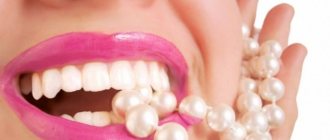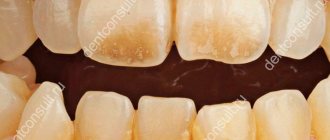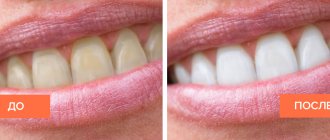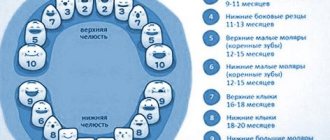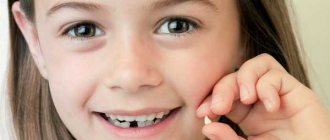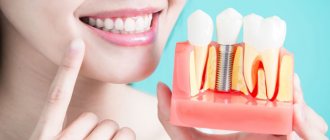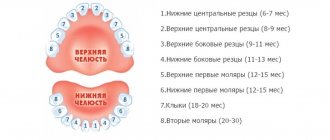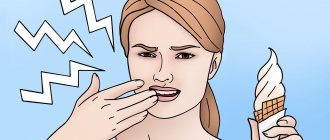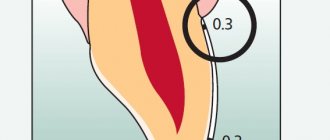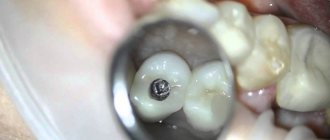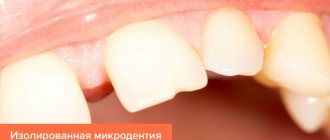Regular oral hygiene plays an important role in maintaining dental health and preventing various diseases.
Almost everyone knows about how dental hygiene affects the general condition of the body. And in fact, anyone can debate this topic.
But, nevertheless, the undeniable fact is that the general health of a person largely depends on the health of teeth and gums. This has been confirmed by various scientific medical studies. Inflammatory processes on the teeth and gums, as well as heavy plaque and other deposits lead to an increase in the number of pathogenic microbes that can provoke a large number of diseases. Heart and vascular diseases, the development of diabetes, complications during pregnancy and premature birth - these and other health problems can arise due to small microbes on the teeth.
As medical dental practice shows, caries, gingivitis and tartar almost always occur due to improper oral hygiene. Having heard the phrase “you are brushing your teeth incorrectly” from a dentist, most patients are very surprised and begin to give other reasons for the development of their diseases, be it heredity, sensitive enamel or crowded teeth.
What is the right and wrong way to care for your teeth?
There are research results that clearly show that 99%
Problems of teeth and gums arise from improper care.
And there is data that shows the opposite picture, as in Switzerland, where regular oral hygiene is instilled almost from infancy. Only 3% of the population suffers from caries. Children are taught to brush their teeth correctly at an early age, special lessons are given at school, and they need to visit the dentist every six months.
As they say, feel the difference.
The formula for dental health looks like this:
proper home care + regular visits to the dentist = healthy teeth and gums
According to statistics, in Russia only 30% of the population brushes their teeth correctly; the rest, alas, do not do this for various reasons. Most often this is due to the inability to brush your teeth properly and a lax attitude towards your health.
Rules for maintaining dental health
To maintain dental health, you need
- You need to brush your teeth twice a day
, in the morning and in the evening
use dental floss to care for hard-to-reach areas
and irrigator
— say "no!"
bad habits - smoking and a lot of sweets
– visit the dentist for examination and professional hygiene twice a year
Professional teeth cleaning is available to everyone
Professional teeth cleaning is a service that is available in almost any dental clinic. The price is affordable for everyone. And after such a procedure you will feel like a million – a real star with a Hollywood smile. Some patients even say that their teeth feel lighter.
The procedure itself is completely painless if there is no caries or severe gum disease. It's comfortable. While the doctor is brushing your teeth, you can watch a movie (some dentists in Moscow provide this opportunity). For cleaning, special tools and products containing glycine are used. After cleaning, polish with a brush and a special paste. Rinse the mouth, apply a strengthening mask to the gums, check the gum pockets and that’s it, the procedure is completed.
If your gums require additional care, the doctor will prescribe appropriate procedures that you can do at home yourself.
There are many different effective oral care products. Your doctor will help you choose which ones are right for you.
It is good to use preparations containing tea tree oil.
Tea tree oil
is a unique natural product that effectively suppresses pathogenic microflora and various bacteria and viruses. Patients who use products with this oil usually have healthier teeth and gums.
Sometimes after a professional cleaning, the doctor may recommend or even prescribe an enamel testing procedure. It depends on the condition of the patient's teeth. If the enamel needs additional strengthening, special pastes are prescribed.
The rapid formation of plaque can be a sign of problems with the gastrointestinal tract. In this case, a saliva test is performed and a referral is made to a gastroenterologist.
You will also need special toothpastes for your teeth.
For patients who do not have serious problems with the condition of their teeth and gums, and patients undergoing orthodontic treatment or in the postoperative period, completely different dental care is prescribed. You also need to know about this.
Brushing your teeth, daily at home and professionally at the dentist, are equally necessary for your health!
Proper brushing of teeth allows you to remove constantly forming plaque and prevents the occurrence of dental diseases.
Let's talk about your main assistants in the fight against dental plaque.
How to brush your child's teeth?
Children's toothpaste is not just toothpaste in bright children's packaging, as some parents think. The paste becomes “childish” primarily due to its special composition . The pleasant taste also plays a role, making the process of brushing teeth more attractive (show us a child who will be happy to brush his teeth the first time?).
Like toothpastes for adults, children's toothpastes should clean teeth well, but do it carefully, without damaging the enamel. For this purpose, they contain very soft abrasive particles .
It is important that the paste has a preventive effect , which is achieved by introducing fluorine, phosphorus and calcium compounds into its . These elements are able to integrate into the crystal lattice of tooth enamel and strengthen it. Among them, fluorine is the most important element. Please note: the amount of fluoride clearly “tied” to the age of the child , and the “age of use” is always clearly marked on the paste tubes.
Pastes for children “up to 6 years old” or “4-7 years old” contain the minimum percentage of fluorides (according to GOST - 500 ppmF).
Pastes for children “from 6 years old” (or “6+”) or “from 8 to 18”, “for schoolchildren”, etc. — the amount of fluorine almost triples (up to 1500 ppmF). rule : the older children become, the more noticeable the amount of fluorides in toothpastes produced for them approaches “adult levels.”
Parents of children with allergies should look for a hypoallergenic toothpaste that does not contain artificial colors, preservatives or fragrances. Too bright, unnatural color and a very strong aroma of the paste should alert the mother, especially if she chooses the paste “for the first time.”
What should be in your arsenal when caring for your teeth?
#1 – Toothbrush
The most effective cleaning is provided by a sonic brush. She removes everything unnecessary and carefully polishes the teeth. It is important to regularly change the attachment or the brush itself, depending on the design. Modern toothbrushes with artificial bristles are able to provide high-quality cleaning without microdamage to the enamel. But the shape and direction of the bristles usually do not play any role; it is important to brush your teeth correctly.
#2 – Toothpaste
Now there are a huge number of different toothpastes to choose from that can protect and even heal tooth enamel. When choosing, be guided by the composition of the paste and the dentist’s recommendations.
No. 3 - Irrigator
A very useful thing, it allows you to ensure hygiene of your wisdom teeth and the areas behind them. During orthodontic treatment and the presence of orthopedic structures, it is the irrigator that will keep your teeth clean and therefore healthy.
#4 – Dental floss
Allows you to remove food debris between teeth. Patients with fillings, veneers, etc. You should use caution when using a thread that has a thin metal wire in the weave.
No. 5 - Rinse aids
They allow you to provide not only hygiene, but also oral care.
No. 6 – Interdental brushes and monotuft brushes
Used while wearing braces.
How many times a day should you brush your teeth?
Firstly, you need to brush your teeth two, or preferably three times a day, immediately after your next meal. But usually you can’t brush your teeth during the day, so try to rinse your mouth after eating at this time.
But cleaning in the morning and evening before bed should become mandatory procedures for you. It is important for women to remember that going to bed with unbrushed teeth is like going to bed with makeup on.
How to brush your teeth correctly
Imagine that you have divided the oral cavity into four sections. And start brushing each of them sequentially for about half a minute, the lower teeth from bottom to top in the direction from the gums, the upper teeth from top to bottom, also from the gums. And then polishing movements back and forth.
There are toothbrushes with a built-in timer, they signal when you need to move to another area. In total, you need to brush your teeth for 2-3 minutes.
Do you need to brush your teeth?
Alas, many parents still mistakenly believe that there is no need to care for baby teeth, and all care and care should be directed to the molars. However, such an opinion is fundamentally wrong. It is imperative to brush your baby's teeth.
- Firstly, the enamel of baby teeth is very weak, and caries affects fragile incisors and molars very easily.
- Secondly, mother's breast milk and formula contain a significant amount of sugar, which inevitably affects the baby's teeth.
- Thirdly, teeth affected by caries can become a source of infection in the oral cavity. Dangerous bacteria can spread throughout the body, causing serious diseases in the baby, such as tonsillitis or pyelonephritis and, of course, subsequently “infecting” the molars.
- Fourthly, it is important to form the habit of brushing your baby’s teeth from a very early age.
It is important for moms and dads to understand that visiting dentists at a young age can be very frightening for a child. Neglected caries can very quickly develop into pulpitis, and the baby’s tooth will be removed, which will inevitably affect the chewing process and the formation of the child’s bite.
Oral hygiene in children
There is a tradition of giving a silver spoon for the first tooth that erupts. We would add a toothbrush to this tradition. We recommend that you teach your child how to brush their teeth in a playful way from the moment the first tooth appears.
Doctors note that up to the age of 10, it is necessary to help children brush their teeth, since at a younger age children find it boring and do not understand why they should do it at all. There are also special liquids or tablets that allow you to check the remaining plaque on your teeth using contrast staining.
There are modern toothbrushes that can be synchronized with a tablet, then brushing your teeth turns into a game.
It is important to remember that the sooner you start brushing your child’s teeth properly, the healthier his teeth will be!
The order of appearance and change of teeth
Most often, baby teeth appear (and then change to molars) in the following order : lower incisors, upper incisors, upper lateral incisors, lower lateral incisors, canines. But the sequence may be broken.
However, the replacement of milk teeth with molars begin with the loss of the front incisors, as many believe, but with the appearance of molars , the most distant teeth in the jaw at that time, in the place of which there were no milk teeth.
What parents need to remember
The baby should see the dentist for the first time at six months, and the first tooth should be cleaned with a special brush.
Sweets harm the first teeth, but daily brushing with a special children's brush and toothpaste is beneficial. Tags:
- Hygiene
- Teeth
- Preschoolers
- Babies
- Kuzmina
3 comments • To leave a comment you must be an authorized user
- few Hello everyone. I wanted to recommend a cool service to you. Using this service, you can find out for free on your phone. You can also read reviews about the numbers or leave your own if a scammer calls you. Thank you for reading my post. I create useful services for people. https://kto-zvonil.net https://kto-zvonil.net https://kto-zvonil.net https://kto-zvonil.net https://kto-zvonil.net https://kto -zvonil.net https://kto-zvonil.net https://kto-zvonil.net https://kto-zvonil.net https://kto-zvonil.net
- tancuet massage "methods: gently massage the gums"
- irina_golovleva at 6-8 months a child can be given hard cheese, gooseberries, currants, cherries???????!!!!!!!!!!!!!!!!!!!!!!!!!!! !!!
The need to maintain hygiene
More than 15 thousand bacteria and microbes live in the mouth. By feeding on food particles, they secrete acids that corrode tooth enamel. If you do not follow a set of hygienic measures, a carious cavity will form.
Oral hygiene includes disinfecting measures aimed at removing dental plaque. Maintaining these steps is an important step in preventing dental disease.
By following the rules of cleanliness you can achieve:
- fresh breath;
- healthy enamel color;
- destruction of pathogenic microflora;
- high quality teeth;
- prevention of caries, gum disease and periodontal disease.
Every person needs increased oral care, especially smokers and people with weak immune systems.
Dental floss
Flosses are used to remove soft plaque from the side surfaces of teeth and from between teeth. Dental floss helps clean hard-to-reach areas that a brush cannot reach. If your teeth and gums are healthy, you can use floss after every meal, as well as after brushing your teeth.
Dental floss is made from natural silk or synthetic fibers (nylon, nylon, acetate). It is better to use artificial materials - they have a fixed thickness, clean the interdental spaces well, do not delaminate, and do not tear.
The surface of the threads can additionally be treated with wax. In this case, it is smoother, penetrates the interdental spaces more easily, and is more convenient to use. Unwaxed dental flosses are not as convenient, but they clean the enamel surface better (such flosses are “rougher”, can separate into fibers, and remove plaque better). The cross-section of the floss can be round, flat, voluminous, or ribbon. The larger the thread, the better it cleans the enamel surface. The flatter the section, the easier the floss penetrates into the interdental spaces. Additionally, the thread can be impregnated with sodium fluoride, chlorhexidine or menthol. Such impregnations generally do not affect the cleaning efficiency. The exception is the antiseptic chlorhexidine, which provides an anti-inflammatory effect.
Floss can only be used if the gums are healthy, not bleeding, and not inflamed. When cleaning teeth with their help, it is important to act correctly: do not press too hard on the side surface of the crown, do not injure the gingival margin.
How to properly care for your first baby teeth?
The first baby teeth, the lower incisors, erupt at 4-6 months of age. Often this process is accompanied by itching, pain, increased body temperature, the child is irritable and whiny. Teething gels can be used to minimize pain. Gently massage your gums with a cloth soaked in the medicine.
The gel has an analgesic and calming effect. These preparations usually contain chamomile or sage extracts that relieve inflammation, vitamin B5 that supports gum regeneration, and, above all, anesthetics that bring immediate relief. During baby teething, you can give your baby rubber teethers that are safe to bite on, reduce itching, and speed up the tooth extraction process.
First visit to the dentist
The first visit to a pediatric dentist should take place after the first four teeth have erupted. A pediatrician is a doctor who primarily deals with the treatment of young children and has a special approach and knowledge in this area. At the first visit, the doctor assesses the condition of the teeth, the correctness of eruption and checks for signs of caries. The first visit is called an adaptation visit, during which the child gets acquainted with the doctor, the office and wakes up for the first time in front of the dentist. This visit mainly introduces the child to a new environment and explores the oral cavity. If there is already a need for treatment, it will be carried out at the next visit.
Baby teeth are of great importance for the health and proper development of the child. They are responsible for proper bite, proper food intake, and influence the development of permanent teeth and the child’s entire face.
Make an appointment with a dentist at Apollonia Dental Clinic.
